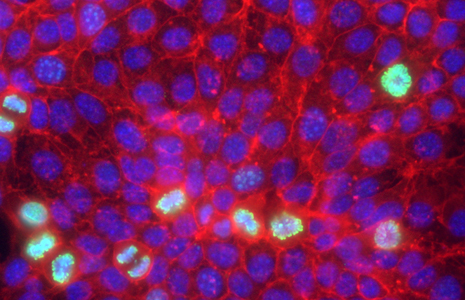
The Jacks Lab is interested in the genetic events that contribute to the development of cancer. The focus of our research has been a series of mouse strains engineered to carry mutations in genes known to be involved in human cancer. We also study the effects of these mutations on normal embryonic development and use cells derived from mutant animals to study the function of these genes in cell culture models. Current research remains centered on the use of gene targeting to create more powerful and accurate mouse models of human cancer and to explore the pathways regulated by cancer-associated genes. We have generated mouse models of several major human cancer types, including lung cancer, pancreatic cancer, ovarian cancer, astrocytoma, retinoblastoma, peripheral nervous system tumors, soft tissue sarcoma, and invasive colon cancer. The mouse models are being evaluated with cutting-edge tools in genetics, genomics, and imaging, as well as with various chemotherapeutic agents.
The Jacks Lab is comprised of post-docs (12), grad students (6), technicians (13), undergraduate students (10), and support staff (3). Prof. Jacks is a Howard Hughes Medical Institute Investigator. Our studies are also supported by the National Institutes of Health, the Ludwig Fund for Cancer Research and the Lustgarten Foundation. Prof. Jacks is a Daniel K. Ludwig Scholar and the David H. Koch Professor of Biology at MIT.The Jacks Lab is part of the David H. Koch Institute for Integrative Cancer Research at MIT (formerly known as the MIT Center for Cancer Research). The Jacks Lab Website contains a research summary for the lab, contact information for all lab members, links to all of our PubMed abstracts, information on requesting reagents, lab protocols, and glimpses of our lab social activities.
Note: The MIT Center for Cancer Research (CCR) has changed its name to the David H. Koch Institute for Integrative Cancer Research at MIT (Koch is pronounced "coke") effective March 2008. This name change is linked to generous funding received in support of the creation of a new building and endeavor, to be completed by the year 2010, to house expanded and innovative cancer research at MIT.
click here for a cool imaging movie of lung tumors in a mouse

mitotic cells (green), actin (red), nuclei (blue) in lung tumor cell lines derived from KP53 mice (photo:T. Oliver)